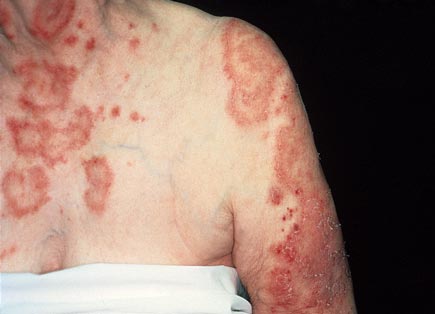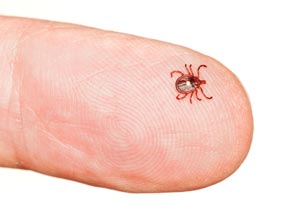New warning for testosterone, approval for inhaled insulin
This update covers a revised warning on testosterone products about the risk of venous thromboembolism, and approval of a fast-acting inhaled insulin to treat diabetes in adults.
Recalls, warnings, and label changes
A revised warning on testosterone products about the risk of venous thromboembolism (VTE). The risk of VTE as a possible consequence of polycythemia is already included in the labeling, but the FDA is requiring a more general warning. The new warning is not related to the ongoing evaluation of the drugs' possible association with increased rates of stroke, heart attack, and death.

A warning on docetaxel (Taxotere, Docefrez, Docetaxel) that it may cause patients to experience intoxication or feel drunk during and after treatment because it contains ethanol. Clinicians should consider the alcohol content of docetaxel when prescribing or administering the drug, and patients should avoid driving, operating machinery, or performing other such activities for 1 to 2 hours after the infusion. The various formulations of the drug contain different amounts of alcohol, which clinicians should be aware of in order to monitor and counsel patients appropriately.
A recall of 1 lot of 0.5% Marcaine (bupivacaine HCI injection), 30-mL, single-dose vials, by Hospira due to a confirmed customer report of particulate embedded in the glass vial as well as visible particulate in the solution.
A recall of 6 lots of Coumadin (warfarin sodium), 5-mg single-use vials, by Bristol-Myers Squibb due to visible particulate matter found in a small number of unreleased samples.
A recall of all BMB-BA006A Advocate Redi-Code+ blood glucose test strips due to a labeling error describing which meter models are compatible with the strips.
A drug safety communication about over-the-counter acne products (including Proactiv, Neutrogena, MaxClarity, Oxy, Ambi, Aveeno, Clean & Clear) and the risk of rare but potentially life-threatening allergic reactions or severe irritation. The hypersensitivity reactions may occur within minutes to a day or longer after product use, and the FDA has not yet determined if reactions were triggered by the active ingredients (benzoyl peroxide or salicylic acid), inactive ingredients, or a combination. To avoid this risk, patients should apply a small amount of such a product for 3 days and watch for a reaction before using regularly.
A warning and recall of injectable vitamin products distributed by Medical Supply Liquidators because the FDA has not approved these products and cannot be assured of their safety, effectiveness, or quality. The products carry a Sunshine Labs label.
A recall of Medtronic Duet external drainage and monitoring systems because the patient line tubing may separate from the patient line connectors, which could result in pneumocephalus, infection, and over/under drainage of cerebrospinal fluid.
A recall of Langston V2 dual-lumen catheters due to reports that the inner catheter can separate from the device hub during use, which may require a procedure to retrieve the separated piece from the patient's vascular system.
A recall of Flexi-Seal Control fecal management system kits because they have not been approved by the FDA, and adverse events have been reported. Issues with the device's auto-valve feature may lead to rectal damage, expulsion of the device and/or leakage, fecal soiling, and death.
A recall of Smiths Medical Portex low dead space connector with sideport, 3.5 mm, due to a single lot of 3.0 mm-sized connectors being mislabeled as 3.5 mm.
A recall of all HydroFinity Hydrophilic Guidewires due to reports of the wire being damaged when the guidewire was withdrawn rapidly, which could potentially result in vessel occlusion.
A safety communication about quality problems with mammograms performed at Big Sky Diagnostic Imaging in Butte, Mont. A routine review showed that the facility did not meet quality standards, so patients who had a mammogram performed there may need to have the exam repeated elsewhere.
Approvals
Afrezza, a rapid-acting, inhaled human insulin, to treat diabetes in adults. It should be administered at the beginning of each meal. Safety and effectiveness were evaluated in more than 3,000 patients with type 1 or 2 diabetes. Inhaled insulin is not a substitute for long-acting insulin. It is not recommended for patients who smoke or have chronic lung disease. A boxed warning cites instances of acute bronchospasm in patients with asthma and chronic obstructive pulmonary disease. The most common adverse reactions in trials were hypoglycemia, cough, and throat pain or irritation.
Tedizolid phosphate (Sivextro) to treat acute bacterial skin and skin structure infections (ABSSSIs) caused by certain susceptible bacteria, including Staphylococcus aureus (including methicillin-resistant and -susceptible strains), various Streptococcus species, and Enterococcus faecalis. It is available for intravenous and oral use. Safety and efficacy were evaluated in two clinical trials with 1,315 adults with ABSSSI that showed similar effectiveness to linezolid. The most common side effects were nausea, headache, diarrhea, vomiting, and dizziness. It not been evaluated in patients with neutropenia, so alternative therapies should be considered.
Eloctate, the first antihemophilic factor, Fc fusion protein, to control and prevent bleeding in patients with hemophilia A. The drug was evaluated in a trial of 164 patients, which demonstrated that it was effective in the treatment of bleeding episodes, in preventing or reducing bleeding, and in the control of bleeding during and after surgical procedures, and it presented no safety concerns. It is an orphan drug.
A new indication for technetium 99m tilmanocept (Lymphoseek) to determine the extent squamous-cell carcinoma has spread in the head and neck. In 2013, the test was approved to help identify lymph nodes in patients with breast cancer or melanoma. Safety and effectiveness in squamous cell carcinoma were established in a trial of 85 patients showing that Lymphoseek-guided sentinel lymph node biopsy accurately determined if the cancer had spread through the lymphatic system. The most common side effect was pain or irritation at the injection site.
Belinostat (Beleodaq) to treat peripheral T-cell lymphoma (PTCL). The drug was approved under the accelerated approval program, and safety and effectiveness were evaluated in a study of 129 participants with relapsed or refractory PTCL, in which 25.8% had complete or partial response. The most common side effects were nausea, fatigue, pyrexia, anemia, and vomiting.
Miscellaneous
The benefits of the angiotensin-receptor blocker olmesartan (Benicar, Benicar HCT, Azor, Tribenzor) continue to outweigh the risks for diabetic patients, according to a recently concluded FDA safety review. The agency chose to review the drug after a placebo-controlled clinical trial of olmesartan in patients with type 2 diabetes showed an unexpected finding of increased risk of cardiovascular death in patients taking the drug. After reviewing additional studies, including a large one of Medicare patients, the agency found a suggestion that high-dose olmesartan may increase cardiovascular risk in diabetic patients, but no conclusive evidence. Overall, the FDA determined that the studies do not clearly show an increased cardiovascular risk and do not support changing recommendations for olmesartan use. The agency will, however, require information about some of the studies to be included in the drug labels, according to a drug safety communication.





